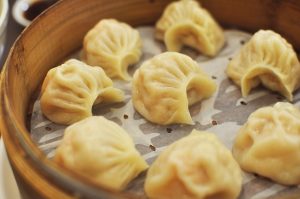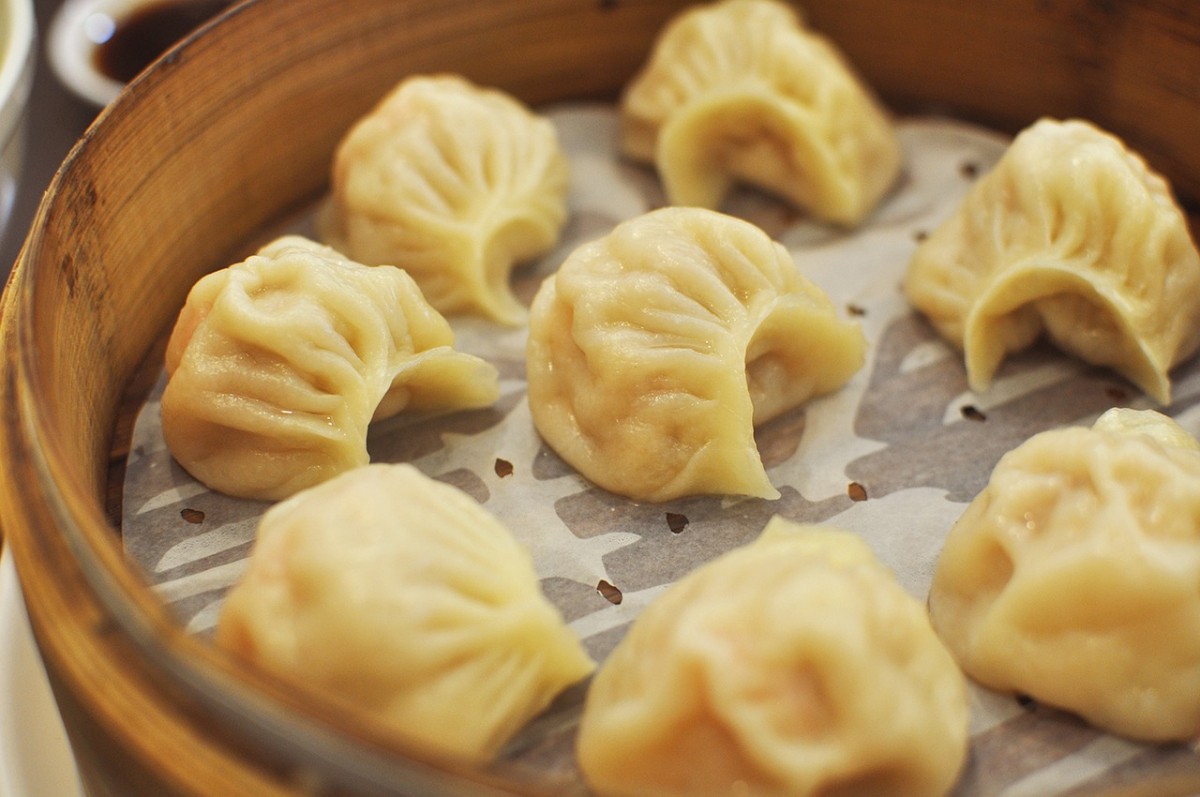
I see my young self in the kitchen of the old duplex, my dad standing tall beside me. Blue and white tiles, gray counter with white grout sectioning off squares. We’re making a meal. There’s a stool for me to stand on, the plastic kind with holes in the the top. The large bamboo steamer is on top of the stove.He shows me how to fill the round rice flour wraps with the sauce, vegetable and meat combination we made earlier. (I’d mixed it together with bare hands, raw beef and green onions squishing between my fingers). We rim the edges of the wraps with enough water so they’ll stick but not too much so they’ll tear. We clasp the ends together, ridged like clam shells. Several of mine overflow, burst. It takes time to get the ratio right.
I’m sure my brother and stepmom were there helping, but my brain has crafted an image that only my dad and I fit into. Maybe because I associate him the most with my Asian side. There’s short grain rice in the rice cooker, thoroughly washed out. When we’re done stuffing and sealing the dumplings, we arrange them in the bamboo steamer and let them cook. They sit as pouches. Homemade. My young self remembers this process as long. Fun, yet tedious. At that moment, I didn’t understand the weight of meaning this memory would hold for me today.
This memory mingles with one nearly ten years later of making dumplings at a college Lunar New Year party. In this later moment, I’ve forgotten about the time I made dumplings with my dad in the kitchen of the old duplex. In this moment, I’m entering the open kitchen of an on-campus apartment. When I sit down to help make the main course for the night, my fingers are clumsy. I forget about the water, the way you trace the radius of the wrap with a single fingerpad’s worth of water, so the ends will glue properly. I forget the ratio of inside to outside. I have no muscle memory for this practice, despite what my appearance has taught people to assume.
My friends tease me for not being Asian enough, they call me “whitewashed.” They toss around experiences of growing up immersed in their Asian food and culture, which contrasts with mine. I grasp at any defense that will allow me acceptance into their world. I know how to cook rice, my family uses chopsticks, I eat kim chi. They go easier on me, but the shame of not having a culture to claim still hides in the misshapen slouch of my finished dumplings. It’s in this moment that the memory surfaces, unearthed from where it was buried six feet under. When I tell them about making dumplings with my dad, I’m boasting. But quietly, I realize I can count only that one. It doesn’t feel like other memories that blend together, like walking to grade school every morning, where each one feels like the rest. This memory stands alone, an anchor in a sea, grounding me.
